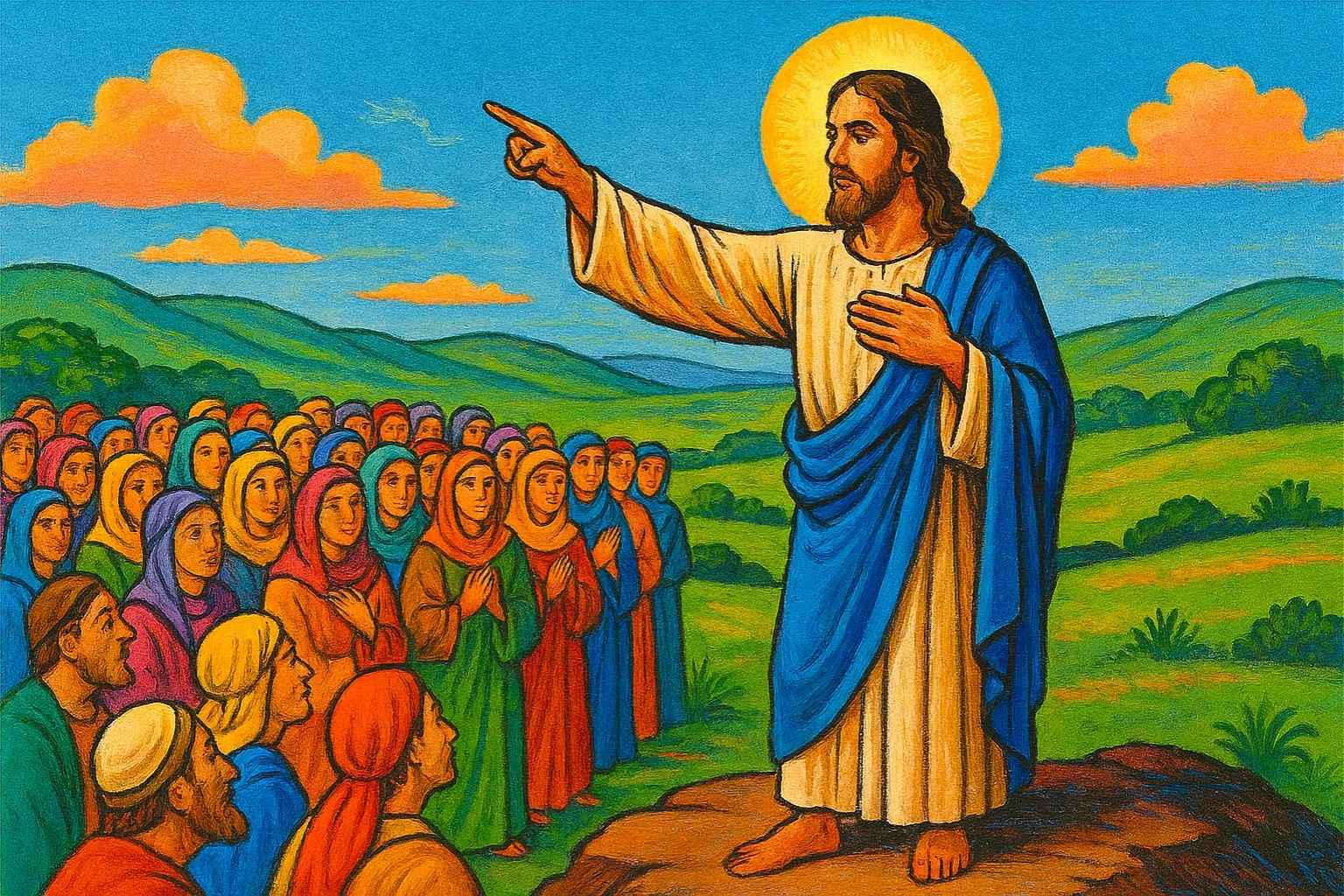|
Getting your Trinity Audio player ready...
|
Resumo: Este texto compara traduções do Sermão da Montanha, focando na palavra hebraica “ashrei”. Ele argumenta que a tradução comum para o grego “makarioi”, que significa “bem-aventurado” ou “feliz”, perde o sentido original do hebraico. Autores como André Chouraqui e Severino C. da Silva sugerem que “ashrei” significa “avante” ou “em marcha”, indicando um caminho de busca e evolução em vez de um estado já alcançado de felicidade. A tradução para “makarioi” teria ocorrido na Septuaginta, uma Bíblia grega, influenciando futuras traduções e mudando a percepção da mensagem de Jesus. A análise sugere que Jesus não chamaria as pessoas de “bem-aventuradas” antecipadamente, mas sim as incentivaria a seguir em frente em seu caminho espiritual.
Palavras-chave: Jesus, multidão, ensinamento, paisagem, cores-vivas.
Abstract: This text compares translations of the Sermon on the Mount, focusing on the Hebrew word “ashrei.” It argues that the common translation into Greek, “makarioi,” meaning “blessed” or “happy,” misses the original Hebrew meaning. Authors such as André Chouraqui and Severino C. da Silva suggest that “ashrei” means “forward” or “on the march,” indicating a path of seeking and evolving rather than an already attained state of happiness. The translation to “makarioi” appears to have appeared in the Septuagint, a Greek Bible, influencing future translations and changing the perception of Jesus’ message. The analysis suggests that Jesus did not call people “blessed” in advance, but rather encouraged them to move forward on their spiritual path.
Keywords: Jesus, crowd, teaching, landscape, vivid colors.


